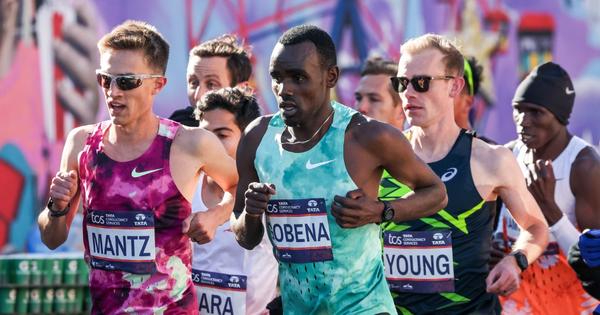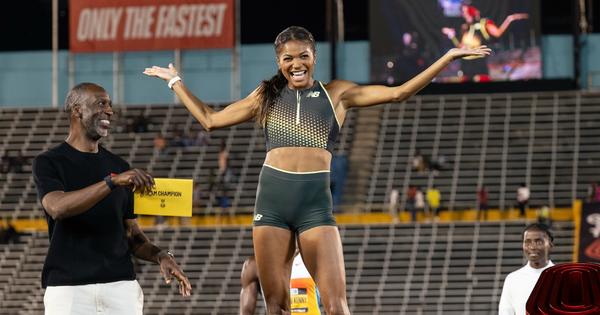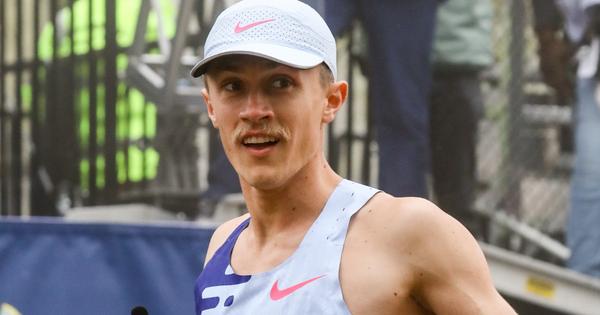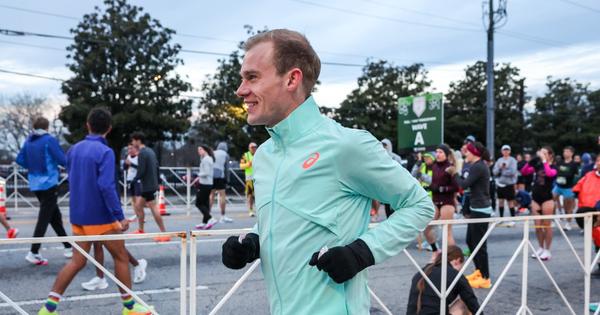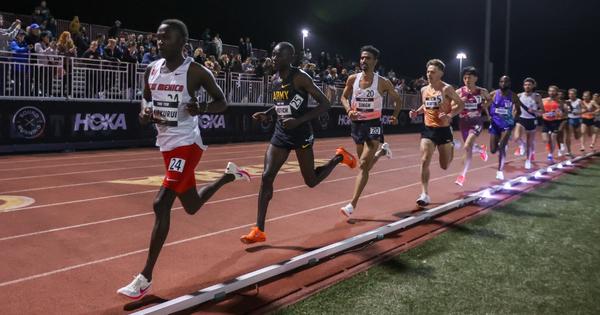By David Melly
April 16, 2025
The 129th Boston Marathon is just five days away (if you’re reading this in between obsessive checks of Monday’s weather forecast, you knew that already), and the vibes are undeniably high.
Sometimes, the leadup to Boston can feel like a bit of a slog, both physically—local runners brave winter long runs and an unrelentingly rainy New England spring—and mentally—online nonsense around qualifying times and poster placement is omnipresent—but once the event itself rolls around, the city quickly becomes enveloped in a weeklong celebration of America’s Marathon. With all due respect to New York and Chicago, the Boston Marathon just feels a bit different, enveloping both the city and the broader running community, a rare instance of our niche sport finding its place in the hearts and minds of mainstream sports fans.
This year’s edition also happens to coincide with the 250th anniversary of the Battle of Lexington and Concord, celebrated annually in Massachusetts as Patriots’ Day-slash-Marathon Monday. And while Paul Revere was riding in the opposite direction a few miles north of the course, the nexus of Boston as the country’s oldest marathon and the symbolic birthplace of the nation (with all the complex feelings that status currently evokes) makes the prospect of an American victory on Boylston Street all the more exciting.
It’s been seven years and 36 races since Des Linden’s legendary 2018 Boston run made her the last American to win a World Marathon Major. On the men’s side, the most recent American WMM victor was Galen Rupp (at Chicago in 2017), but the last time an American man was Boston champ was over a decade ago, when Meb Keflezighi reclaimed the celebratory nature of the race the year after the trauma of the 2013 bombing.
It’s been a while… so Conner Mantz’s comments on the CITIUS MAG Podcast last week about his odds of victory got lips a-flapping. There’s nothing American distance running fans would love to see more than a runner (or two) break the tape on Monday, and with Mantz coming off a national record performance in the half marathon in January, expectations are sky-high for his return to the 26.2-mile distance. Mantz will enter the race with a big spotlight—perhaps his biggest yet—but he’s also not the only contender for Team USA with an outside shot at a spot on the podium, or better.
Really, this conversation breaks down into two questions: 1. Which Americans have the potential for a Major-winning performance? and 2. Can they beat the other contenders to pull off the win?
On the men’s side, the answer to the first question is relatively straightforward. The top three American marathoners of 2024 (at least on the WMM circuit) are all toeing the line in Hopkinton: Conner Mantz, Clayton Young, and CJ Albertson. Mantz has the most obvious argument for the highest ceiling, having broken 60 minutes in the half twice this spring and earning top American honors in NYC last fall and Paris last summer. Mantz has “only” run 2:07:47, a few minutes off the caliber of a typical WMM-winning athlete, but his 2:08:12 performance at the Olympics (a hilly, un-rabbited race like Boston) has to be worth a few minutes faster on a flatter course. And it’s not crazy to speculate that the 28-year-old in just the fourth year of his marathoning career may be on the verge of a true breakthrough. It’s entirely possible that this time next year we may look back on Mantz’s half marathon runs—which convert to 2:05-mid on the World Athletics scoring tables—as early indicators of a 2025 season for the ages.
Can a 2:05 runner win Boston in 2025? Absolutely. When Benson Kipruto won Boston in 2021, his PB was 2:05:13 (it’s now 2:02). 2022-2023 champ Evans Chebet has a 2:03:00 from the mythically-fast Valencia, but his next fastest performance after that is 2:05. Similarly, defending champ Sisay Lemma sports a daunting 2:01:48 best next to his name, but that time also comes from Valencia and Lemma’s record outside Spain indicates he’s more consistently a 2:04-type runner.
Is Mantz favored to win? Absolutely not. But it’s not out of the realm of possibility.
Albertson and Young are likely longer shots, as neither has shown the signs of ascendance that Mantz has this spring. But Young trains side-by-side with Mantz, and often finishes races within a few steps of his partner, so he’s at least worthy of a mention in any conversation that involves the younger BYU alum. And although Young has never beaten Mantz head-to-head in a marathon, there’s a “law of large numbers” argument to be made that, after so many close finishes, Young is due. But that seems more likely to happen in a race where the duo finishes just inside the top-10, rather than both landing on the podium.
CJ Albertson is, as always, more of a wild card. The self-coached Californian first got on the radars of many a casual fan with his audacious front-running in Boston in 2021, but in the year’s since he’s backed up his unconventional training and racing antics with one of the more consistent resumes of sustained success on the roads, finishing five marathons last year between 2:08:17 and 2:10:57. In normal years, that likely won’t be enough to end up on top, but Albertson fits the Meb Keflezighi-Yuki Kawauchi mode well: a dark horse gamer who could capitalize on crazy weather or a well-timed sneak attack to come away with an unexpected victory. And Boston is one of the races where that seems to happen more than anywhere else.
In order to pull off such a feat, one of these three would have to take down a field that includes former champs Lemma and Chebet, reigning Chicago champ John Korir, and rising star Daniel Mateiko. 2013/2015 champ Lelisa Desisa is also in the field, but hasn’t finished a marathon since 2020 and is riding an unenviable streak of five DNFs. And the biggest unknown of all is the marathon debut of 2x World 5000m champ Muktar Edris, finally moving up to 26.2 at age 31. If Boston turns into a test of pure speed, either with a hot pace from the start or a blistering pace at the finish, all of these guys falling victim to Mantz et al feels like a tall order. But if Boston turns into a secret third thing, with random attacks over the hills and packs splintering than re-forming, none of these guys (with the exception of Chebet possibly returning to his 2022 form) is unbeatable.
The women’s race features fewer obvious frontrunners on Team USA but a collection of intriguing names nevertheless. The fastest entrants by personal best are Sara Hall (2:20:32) and Keira D’Amato (2:19:12), both looking to reignite the flame after unspectacular 2024 seasons. Hall completed four marathons last year, the best of which was a fifth-place run at the Olympic Trials, but hasn’t finished in the top ten of a WMM since Tokyo in 2022. D’Amato spent most of the 2024 season honing her speed over shorter distances after a DNF at the Trials, winning a U.S. road title over 20km in New Haven and clocking a 31:05.31 10,000m on the track, but she hasn’t posted a truly strong marathon finish since her epic string of success in 2022. Hall and D’Amato are both competing as masters now (Hall is 42 and D’Amato turned 40 last fall), but citing age as a limiting factor in a race that includes Edna Kiplagat feels foolish.
Emma Bates is one of the most consistent marathoners the U.S. has to offer, and her 2:22:10 fifth-place performance from 2023 was faster than last year’s winning time of 2:22:37. After missing the Olympic Trials with an injury, Bates recorded two solid finishes at Boston (12th) and Chicago (11th), but she’s likely hungry for a return to the podium after getting within one place and less than two minutes from a victory in Chicago in 2021. Others, like Dakotah Popehn, Jackie Gaughan, Gabi Rooker, and Jess McClain have made strong cases that they belong in the top echelon of American marathoning, but aside from Popehn’s daring run at the Paris Olympics, there isn’t a lot of indication to suggest that anyone from that group could make the jump from top American contention to battling for the overall win.
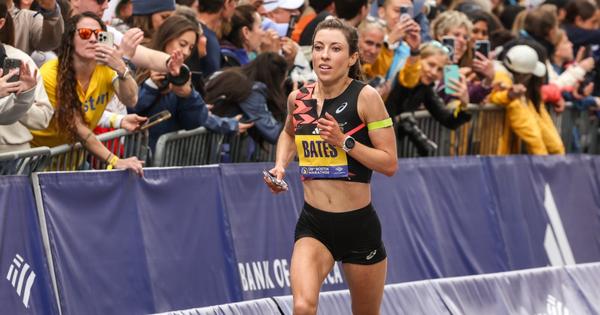
Emma Bates | Photo by Kevin Morris / @kevmofoto
But ultimately, any conversation around American women’s winning potential is burying the lede: anyone, from any nation, who wants to win this year’s Boston Marathon has to go through Hellen Obiri first. Obiri is the two-time defending champion who can win any sort of way, has yet to log a truly bad marathon, and by all accounts is fit and stronger than ever. Five other women have completed the Boston threepeat (three have done it three years in a row), but none* have done so in the Abbott major era (Rita Jeptoo crossed the finish line first three times but her 2014 title was stripped for doping). The only real knock against Obiri is the odds against threepeats, but if anyone can do it, she can.
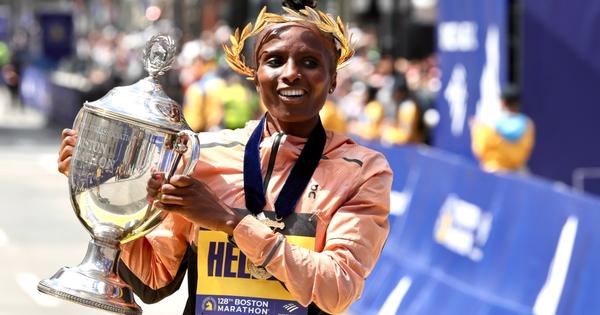
Hellen Obiri | Photo by Kevin Morris / @kevmofoto
Beyond Obiri, the two women most likely to beat her are also going to be pretty dang hard for the Americans to beat. Amane Beriso finished behind Obiri in 2023, is the reigning World champ in the marathon, and the fifth fastest woman of all time. Sharon Lokedi finished behind Obiri last year and is one of the few women to beat her head-to-head in a marathon, during both their debuts at New York in 2022. Lokedi is riding the high of a victory at the NYC Half, and while Beriso hasn’t raced since the Olympic Marathon, she’s remarkably consistent, finishing top five in every marathon she’s contested since 2018. It’s incredibly difficult to imagine an American beating any of that trio, let alone all three.
The best bet at a surprise win would likely be one or more Americans sticking in the mix in a kicker’s race. Even after cutting out the topsy-turvy 2018 year, the women’s race in Boston has turned into a real crawl several times over the last decade, with winning times of 2:24:55 in 2015, 2:29:19 in 2016, and 2:25:09 in 2021. Often times, a battle over the last 10km still shakes out to a battle of the fittest (that’s how Obiri won both times), but if the race hits halfway in 67 minutes, it’s highly likely that the Americans will simply be too far out of reach to claw their way back over the Newton hills.
The simple conclusion to this long, drawn out exercise is that betting on an American to win Boston this year will still get you pretty long odds, but stranger things have happened. The beauty of championship-style racing over tough courses is that the variability of race outcomes increases, and you get much more interesting results as a result. Before Sharon Lokedi was a NYC Marathon champion, she was an 10,000m specialist with a couple solid halves under her belt. Before Des Linden’s 2018 title, her resume looked a heckuva lot like Emma Bates’s does right now. And before Ryan Hall was a sub-2:05 runner, he was an up-and-coming young road racer with a lot of talent and a penchant for grinding in workouts. Sound familiar?
The only way to know for sure is to run the dang race, and the best way to do your part is to tune in or show up to the course and scream at your preferred racer (American or otherwise, from behind a TV screen or a metal barrier, as loud as possible either way) as they make their way from Hopkinton to Back Bay. When the dust settles, we might just get another entry in the history books from a new American hero.
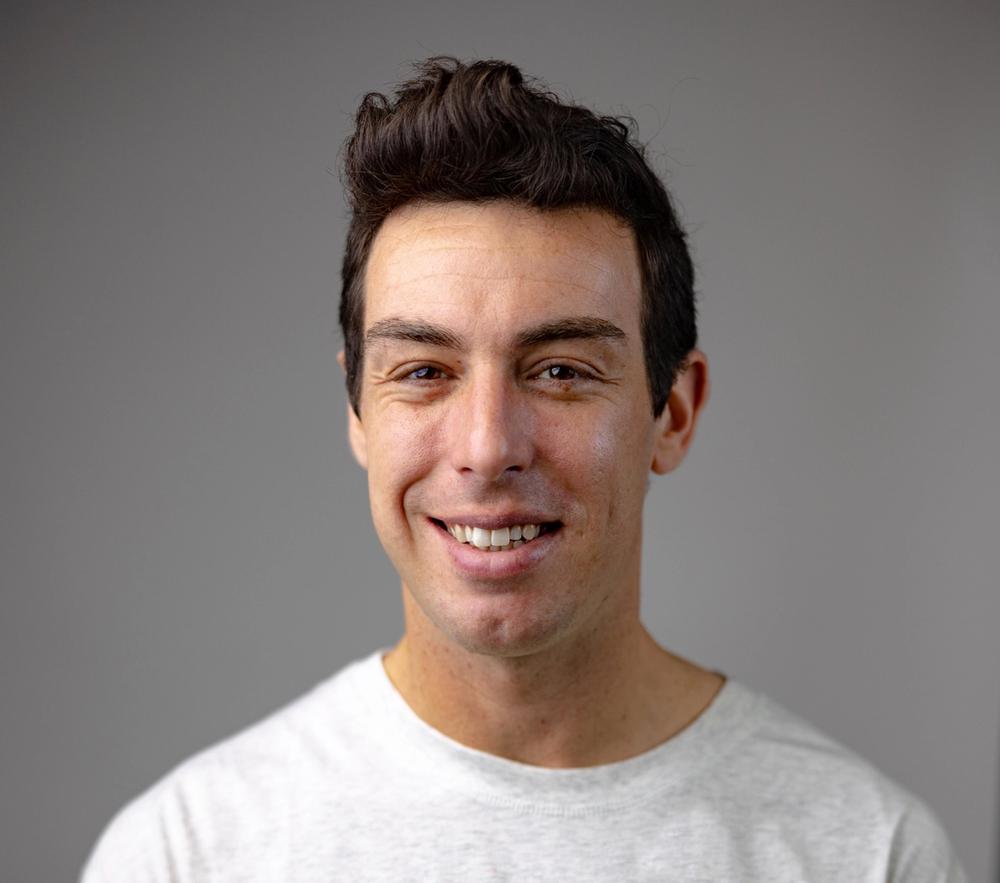
David Melly
David began contributing to CITIUS in 2018, and quickly cemented himself as an integral part of the team thanks to his quick wit, hot takes, undying love for the sport and willingness to get yelled at online.
